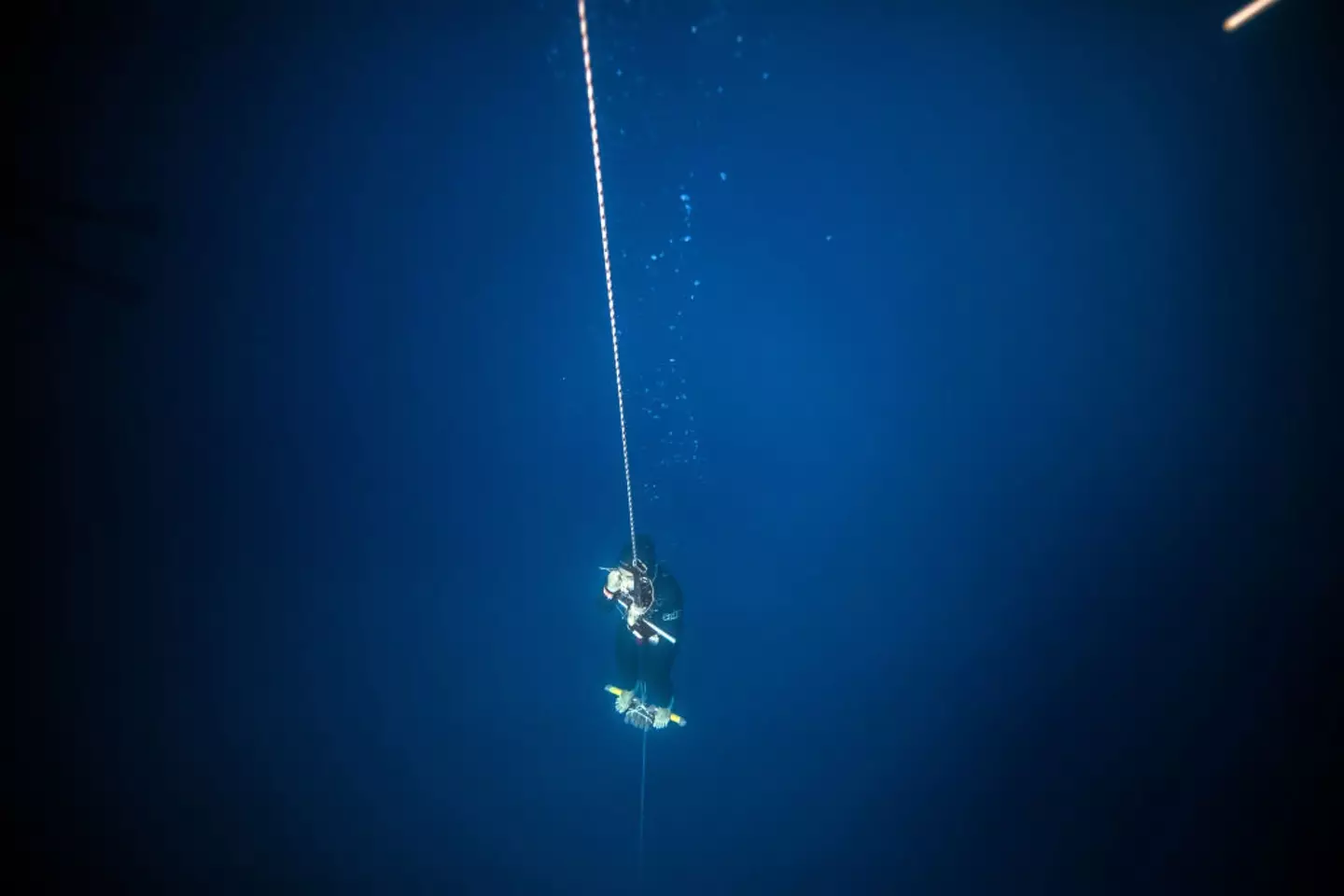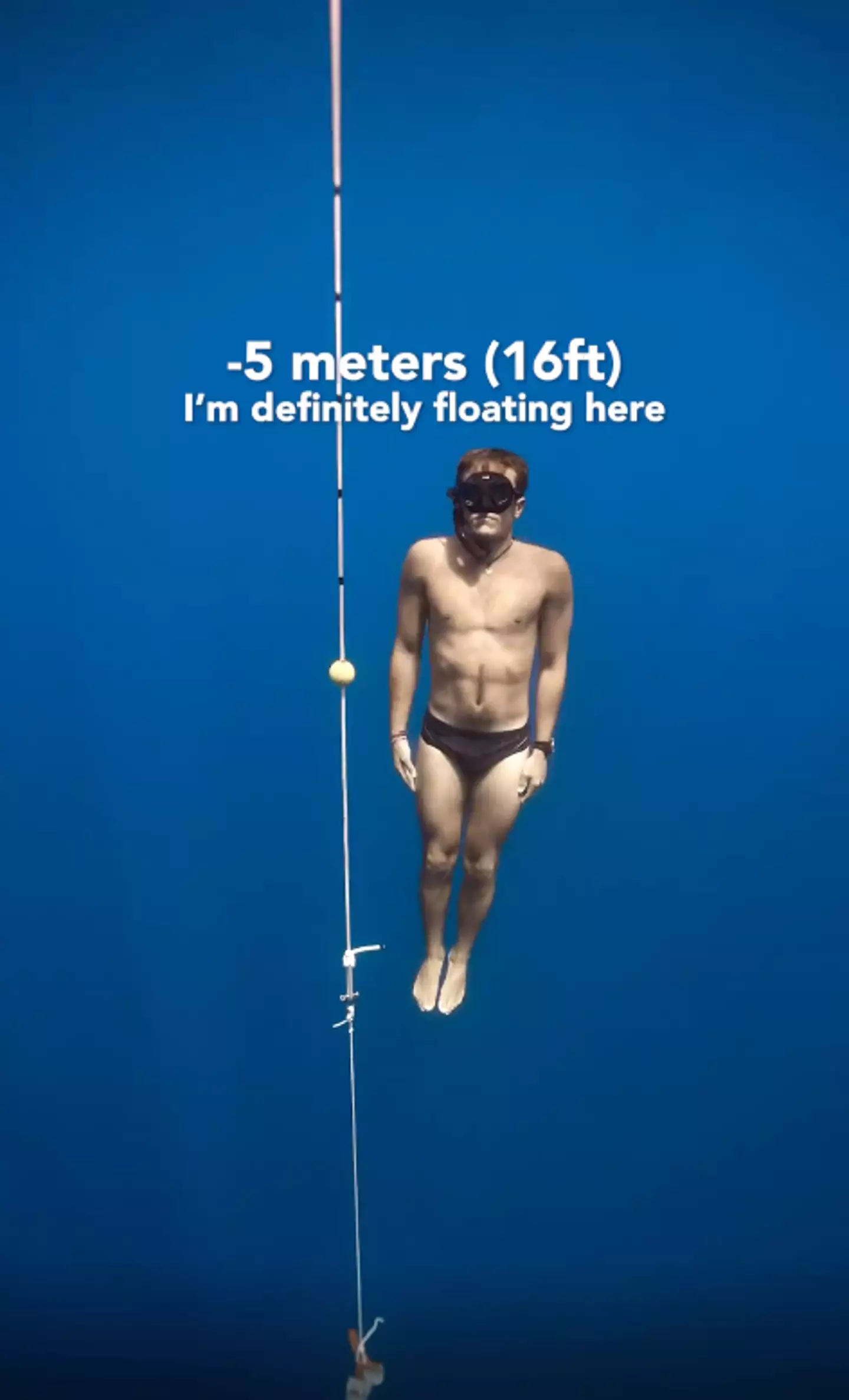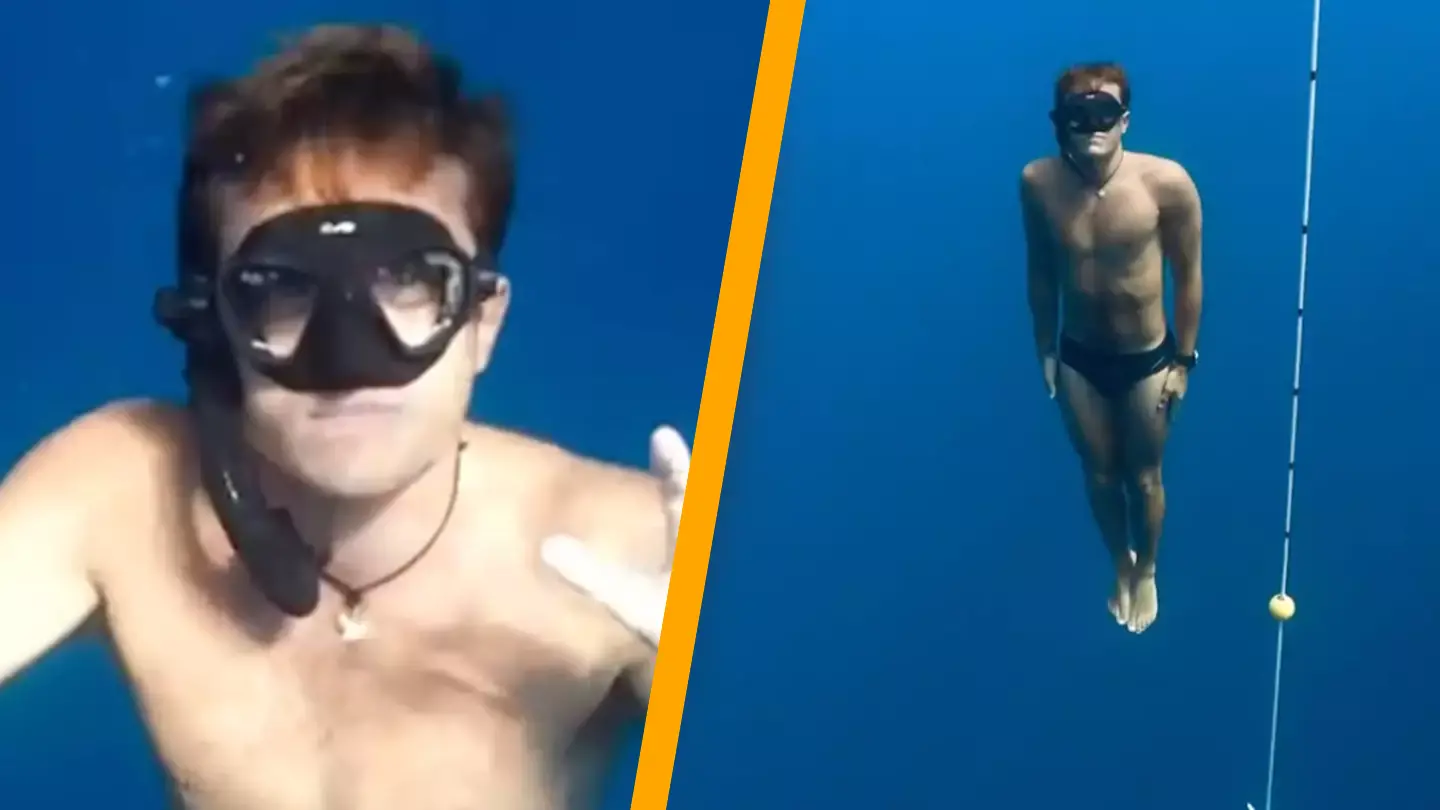A man ventured into the ocean to illustrate the effects of different depths on the human body underwater, leaving many quite alarmed.
Free diving is a sport that definitely isn’t meant for the fainthearted.
A recent video shared on Reddit starkly highlights this notion.
This is due to the water pressure’s effect on the human body during deep dives.

The video stated: “If you descend only 10m into the ocean, you are subjected to another additional atmosphere of pressure: that’s twice as much pressure as you’ve been used to at the surface.”
As expected, the pressure rises the deeper you go.
The video further explained: “And for every 10m beyond you get another atmosphere of pressure.
“That starts to manipulate your body, your anatomy and your physiology in quite profound ways, which actually make the endeavour of diving into the deep ocean uniquely difficult.”
This pressure will ‘compress you and shrink the air-containing spaces in your body’. Additionally, it alters the behavior of gases within the body.
Reddit users were understandably taken aback, sharing their reactions in the comment section.
One user exclaimed: “WHAT DO YOU MEAN YOU SINK WHEN YOU GO DEEPER WHAT THE F*CK”
Another said: “I had no idea this was a thing and I just became slightly more afraid of the ocean.”
A third added: “Such a simple thing to give me nightmares.”
“Well I wasn’t scared of water before now I’m terrified thanks,” another user confessed.
The pressure’s influence on the human body is also crucial in understanding scuba diving dynamics.
As you dive deeper, the increased pressure makes it physically impossible for your lungs to inflate without assistance, even if air is available.

DeeperBlue.com explains that each additional 10 meters of depth increases the pressure on your body by 1 bar.
Thus, as our volume decreases, our buoyancy lessens.
To cope, divers have air supplied at pressure, which aids the diaphragm in inflating the lungs.
When going deeper, releasing more pressure is necessary to counterbalance the extra weight.
However, due to nitrogen absorption from compressed air at certain depths, scuba divers face the risk of decompression sickness. They must also continuously exhale during ascent to avoid lung injuries or even death.
As a result, recreational divers shouldn’t dive below 18 meters, according to Dive Newcastle, though technical divers can explore greater depths.
One might wonder about the appeal of diving deeper.

